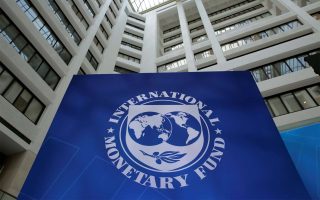The International Monetary Fund (IMF) and the Kenyan government have come to an agreement for an additional $2.4 billion in financing for the East African economy. The fund is aimed at stabilizing Kenya’s economy which has sustained major economic fallout from the COVID-19 (coronavirus) pandemic.
“I am pleased to announce that the Kenyan authorities and the IMF mission team have reached agreement on economic and structural policies that would underpin a 38-month program under the EFF and ECF arrangements for about $2.4 billion,” May Goodman, Staff team lead for the IMF said in a statement during a virtual mission.
Between October and November 2020, Goodman led a group of IMF staff to undertake negotiations on a three and a half (3½) year Extended Fund Facility (EFF) / Extended Credit Facility (ECF) arrangement. In the end, she noted that conversations were held against the backdrop of the unprecedented shock that Kenya has suffered due to the pandemic.
Kenya has a largely agrarian economy as it’s agricultural sector is one of its top employers and key foreign earners alongside tourism and manufacturing. However, a series of droughts and desert locust infestation between 2018 and 2020, threatened national food security and livelihoods in Kenya. While this had a significant impact on the country’s revenue, the pandemic further worsened the state of the economy.
Nevertheless, the IMF noted some significant moves by the government which have played an important role in cushioning the impact of the pandemic on its economy. They include the introduction of certain financial tools like supporting broad-based loan restructuring for borrowers hit by the shock, easing of monetary policy, temporarily cutting tax rates and the launching of programs to support vulnerable groups.
The latest $2.4 billion funds are in addition to the $739 million that the Fund’s Executive Board approved in 2020, to be drawn under the Rapid Credit Facility (RCF) in response to the COVID-19 pandemic.
The RCF provides rapid concessional financial assistance with limited conditionality to low-income countries (LICs) facing an urgent balance of payments needs. It was created under the Poverty Reduction and Growth Trust (PRGT) pledge as part of a broader reform to make the Fund’s financial support more flexible and better tailored to the diverse needs of LICs. This is including times of crisis like the pandemic, placing emphasis on the country’s poverty reduction and growth objectives.








